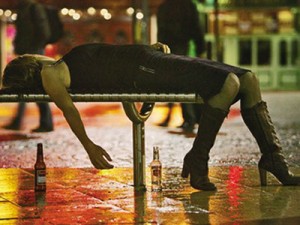
A new report by the Men’s Health Forum calls for a reduction in alcohol consumption and more stringent legislation concerning alcoholic policy in Ireland.
‘A Report on the All-Ireland Young Men and Suicide Project’ focuses on effective mental health work and suicide prevention amongst young males. A part of the report focused on alcohol and suggests alcoholic consumption could be a contributing factor to suicide.
The report is just the first in a number of examinations highlighting Irish society’s abuse of alcohol. According to Alcohol Action Ireland, most teenagers first consumed alcohol between the age of 15 and 16. 40% of those said they not only drank, but also binged, meaning consuming large quantities of alcohol in one go. Seven in ten men in Ireland are already drinking without knowing the harmful effects it’s causing. Women are not excluded, accounting for a quarter of all alcohol-related hospital discharges. Perhaps these disturbing numbers can in some way be linked to the rise of cheap alcohol, which costs the State €3.7 billion a year according to the HSE.
“We have this whole cultural relationship with alcohol,” says Brian O’Connell Journalist and author of the book Wasted: A Sober Journey Through Drunken Ireland. “We have an unquestioning attitude towards binge drinking. In fact we glorify it on many levels.” O’Connell’s book investigates Ireland’s fondness with drink, by exploring: Ireland’s emotional connection to alcohol, its difficulties with discussing sobriety, and its history with problem drinkers. O’Connell says himself, that the book was never intended to be an academic examination of Ireland and alcohol. Instead, it was more of a personal description of Irish people and drinking. “I think Ireland’s relationship with drinking is quite dysfunctional. If we look at statistics, they say we have one of the highest levels of teenage binge drinking in the EU,” says O’Connell.
Although binge drinking is a problem within many cultures, for Tom Inglis, Associate Professor at the School of Sociology in UCD, it’s how, where, and with whom we drink that matters. “What is different about the Irish is where and how they drink. There is still a strong pub culture, although this has changed quite rapidly since the beginning of the century. It is not that we drink too much. It’s that when we do, we binge drink,” says Professor Inglis.
This binging culture is also fuelled by an individual’s approach to social situations and a rise in a group think culture. According to Dr. Stanton Peele, a leading academic in addiction studies and author of Personality and Alcoholism: Establishing the Link, some people drink in order to “modify” how they act. In certain instances, Dr. Peele argues, it makes an individual feel “powerful” or “socially at ease” around their friends or on nights out. If, as Dr. Peele argues, groups “regularly” rely on drinking as an entertainment” or “encourages” what he calls “anti-social acting out” individuals can become more susceptible to drinking in excess.
According to Dr. Peele, this group think process, can lead to damaging alcoholic dependency in the long run. In certain social situations Irish people may feel compelled to drink. “When it is asserted that functioning requires alcohol, they may be said to depend on drinking,” says Dr. Peele.
A large part of Ireland’s dependency on drink stems from the fact that as a culture we just naturally avoid talking about issues, such as drinking, in any great detail. For O’Connell, it’s time we started to talk about our dependency on drink. “There’s a huge irresponsibly in Ireland by parents who don’t have conversations about drinking and are upfront about drink. I think they are the conversations we need to start having in homes around Ireland,” he says.



